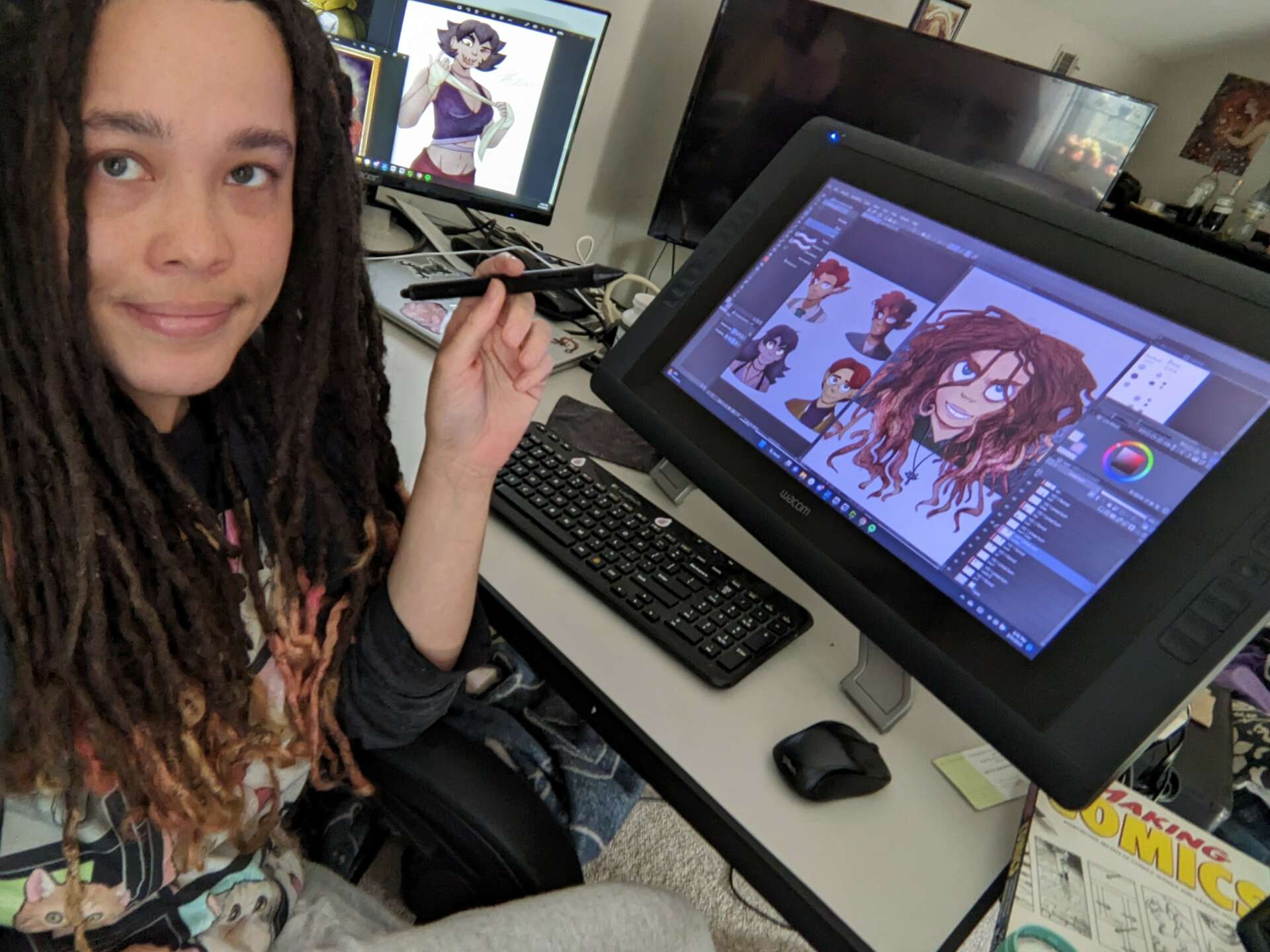We recently connected with Kira Clayton and have shared our conversation below.
Alright, Kira thanks for taking the time to share your stories and insights with us today. We’d love to hear about a project that you’ve worked on that’s meant a lot to you.
My most meaningful project is definitely my ongoing webcomic, Crowned Vessel. I’ve wanted to make it since I was a teenager, and it’s an amazing feeling to finally bring the story and characters out of my head into visible form. It’s my ultimate passion project.
Since this project means so much to me, I’m very careful about how it’s executed. I want it to be the best that I can make it, but with that comes the pitfalls of perfectionism which can lead to nothing getting done at all. It’s a skill in itself to recognize when you’ve done the best work that you can in the current moment, embrace it, then move forward – gradually building your skill and experience and always working towards something that would impress your past self. With long-term projects like a webcomic that’s pretty much published as you make it, you can sequentially see that journey. I think that’s pretty neat, even though as artists it’s common for us to cringe at our past work.
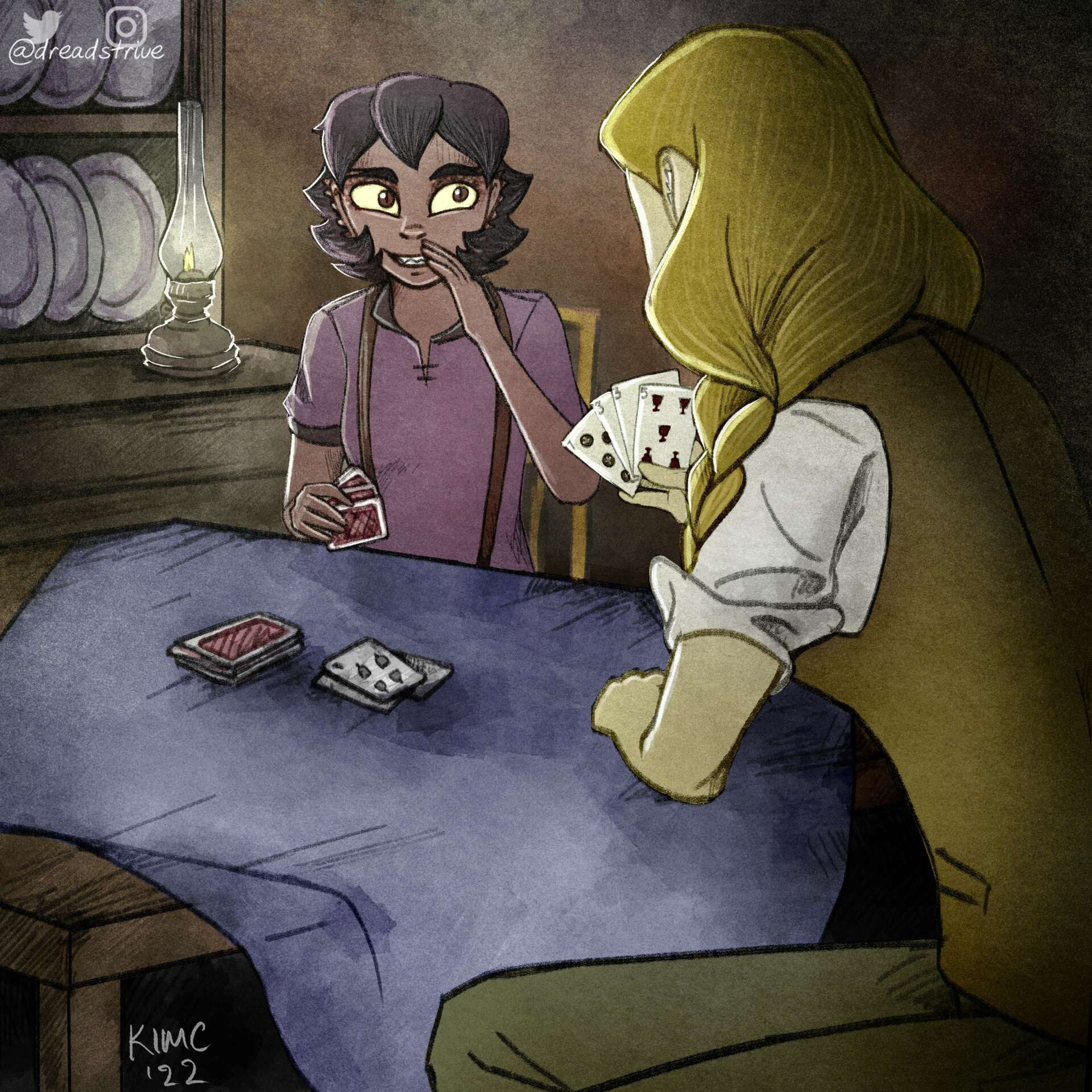
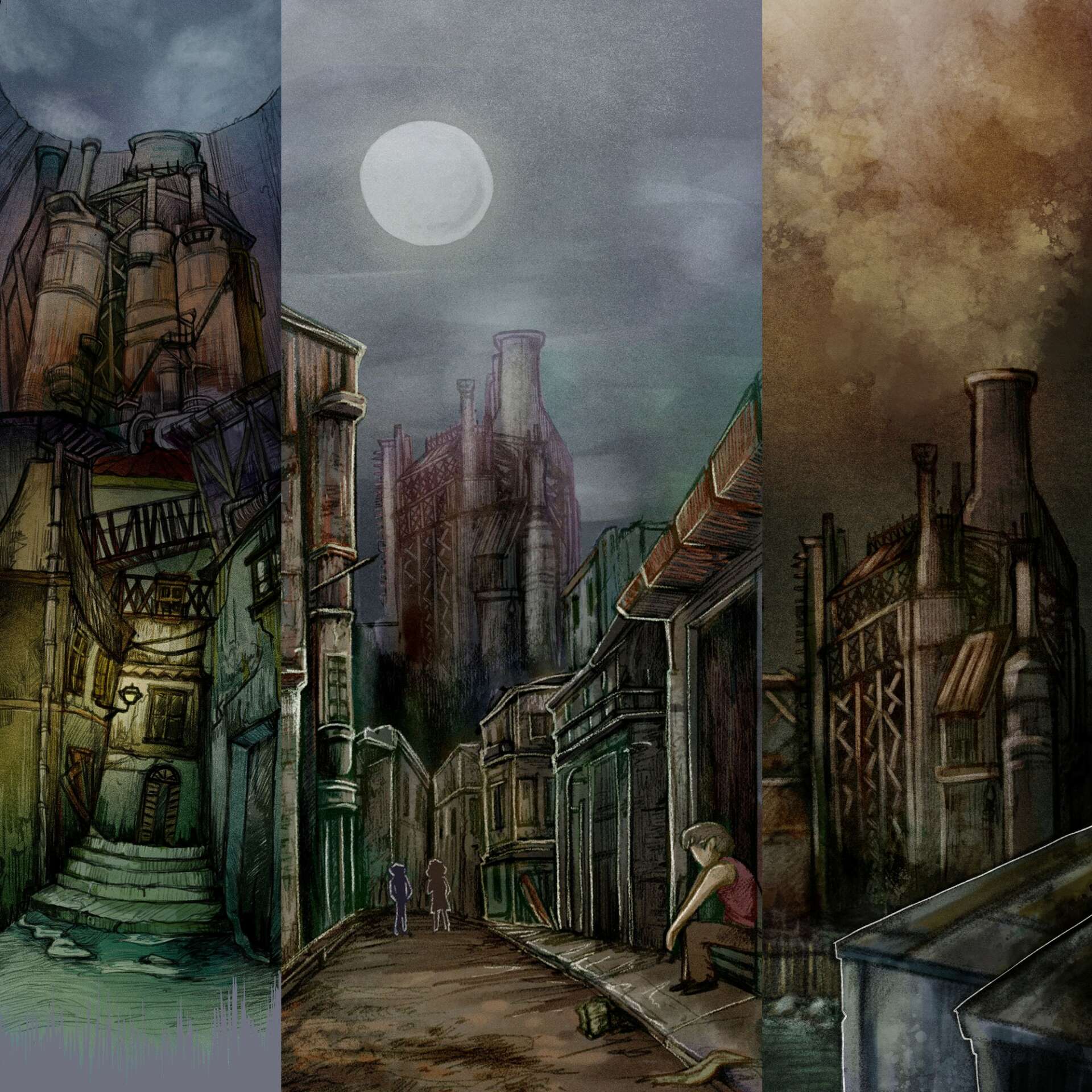
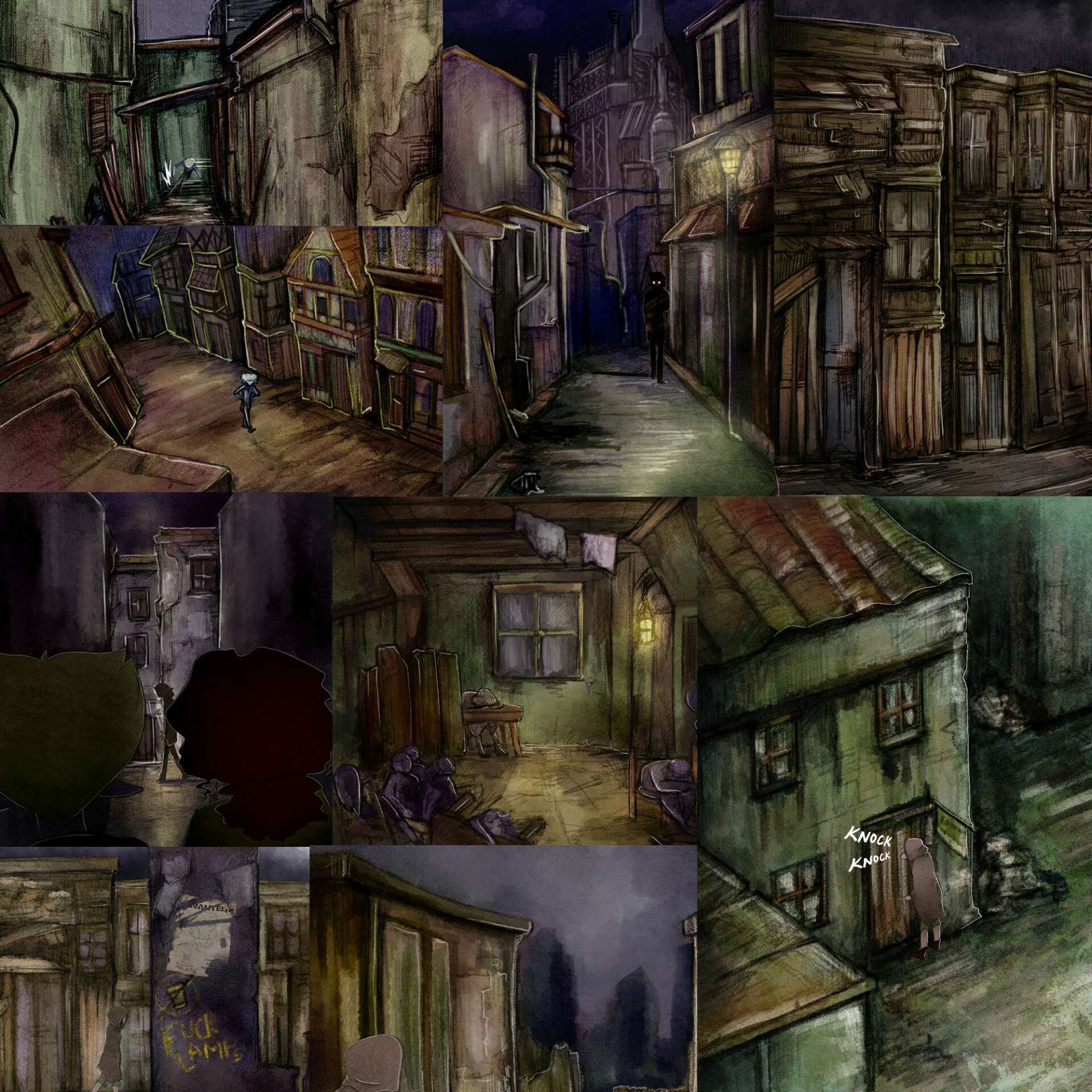
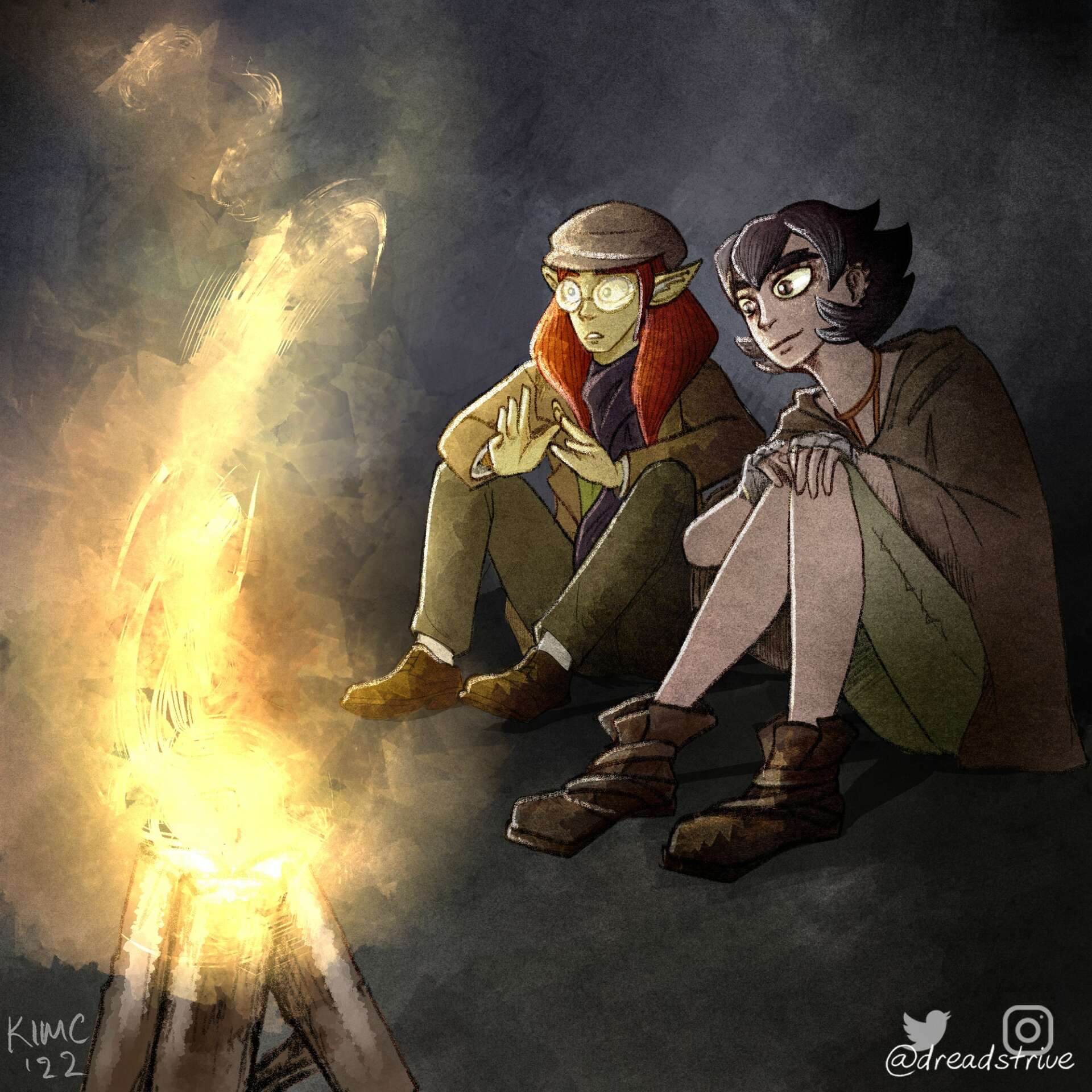
Kira, love having you share your insights with us. Before we ask you more questions, maybe you can take a moment to introduce yourself to our readers who might have missed our earlier conversations?
I’ve loved writing and drawing since I was very young, and fantasy is one of my favorite genres. For a long time I’ve been building my own unique fantasy world, gathering inspiration from a wide range of both fictional and real-life sources.
I’ve also developed my unique art style over the years. I love color, particularly the rich, tactile impression that comes from applying color in traditional art, which I missed once I switched to digital art. I experimented with different techniques and tools until I got to the textured, painterly look that I use in my comic. It looks as if it’s made with traditional media, even though it’s completely digital.
Creating my comic has been very rewarding and I’m proud of what I’ve done so far. Part of the reason I put off making it for so long is because I felt I didn’t have enough skill yet to do it justice. Since I’ve started actually making it, I’ve consistently surprised myself at what I’ve been able to pull off. For instance, I used to hate doing backgrounds because I felt like I wasn’t any good at them, but now it’s the thing I get complimented on most often when people look at my work!
Can you tell us about a time you’ve had to pivot?
For a long time I was working towards a creative career, particularly in the animation industry. At a certain point I had to take a step back and think about what my personal goals really were, where I wanted to put my creative energy, and how I was going to align that with earning a living and taking care of my mental health.
Earning a living as a creative is tough, and I know that many amazing and talented people are able to find success and be fulfilled by that. But I think, too often people equate fulfillment and purpose with what you do for money. It’s what we’re taught from a young age (“What do you want to be when you grow up?”) and it’s definitely a tricky and nuanced thing to navigate – after all, we need money to live in society, and most of us have to dedicate the biggest chunk of our time to making that money. It’s only natural that people who are inclined to make art would have the goal of making that their career. But you’re no less of an artist if you don’t do art professionally – if you create for yourself during the times when you’re not doing a “regular” job for money, you can definitely find joy and fulfillment there too.
That’s where I landed. My current career is not creative, but I’ve managed to carve out a balance between my work life and my artistic life. That in itself is challenging and might not be feasible for everyone, but for me personally I’ve found that this is the best way to achieve financial and emotional security and pursue creating my dream project.
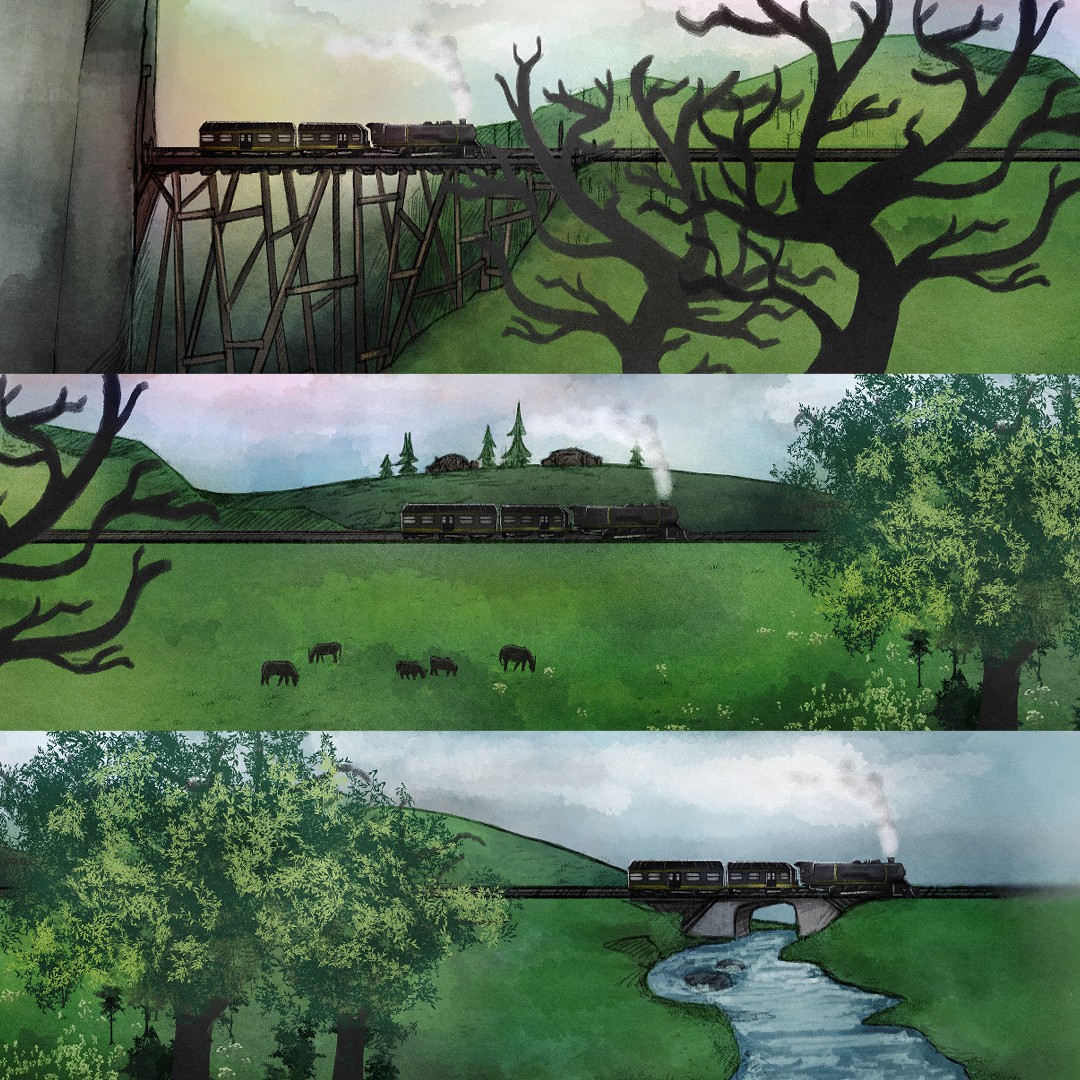
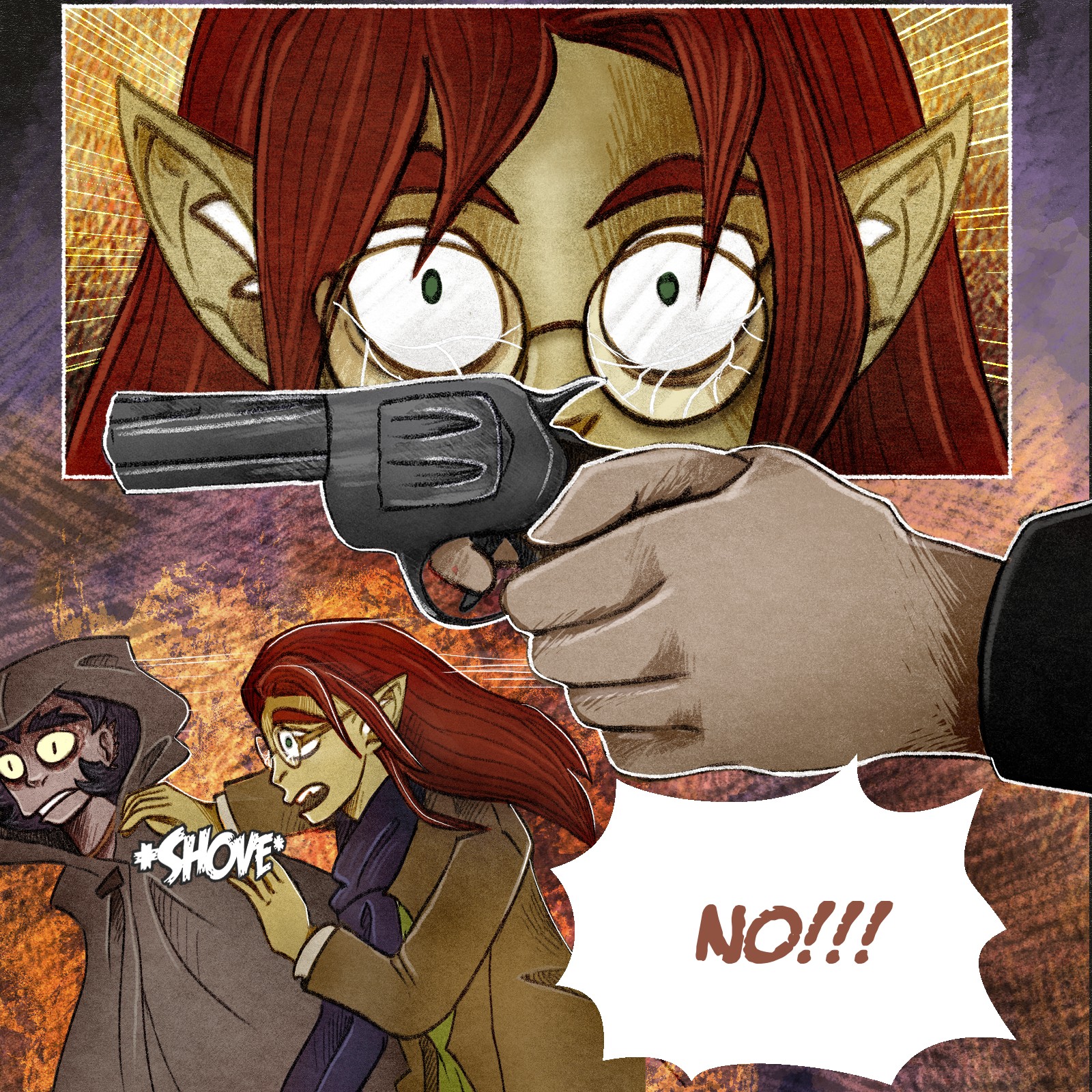
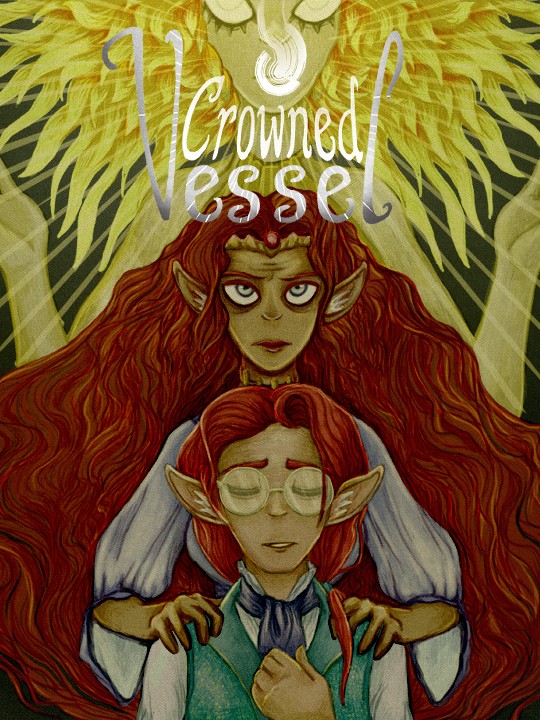
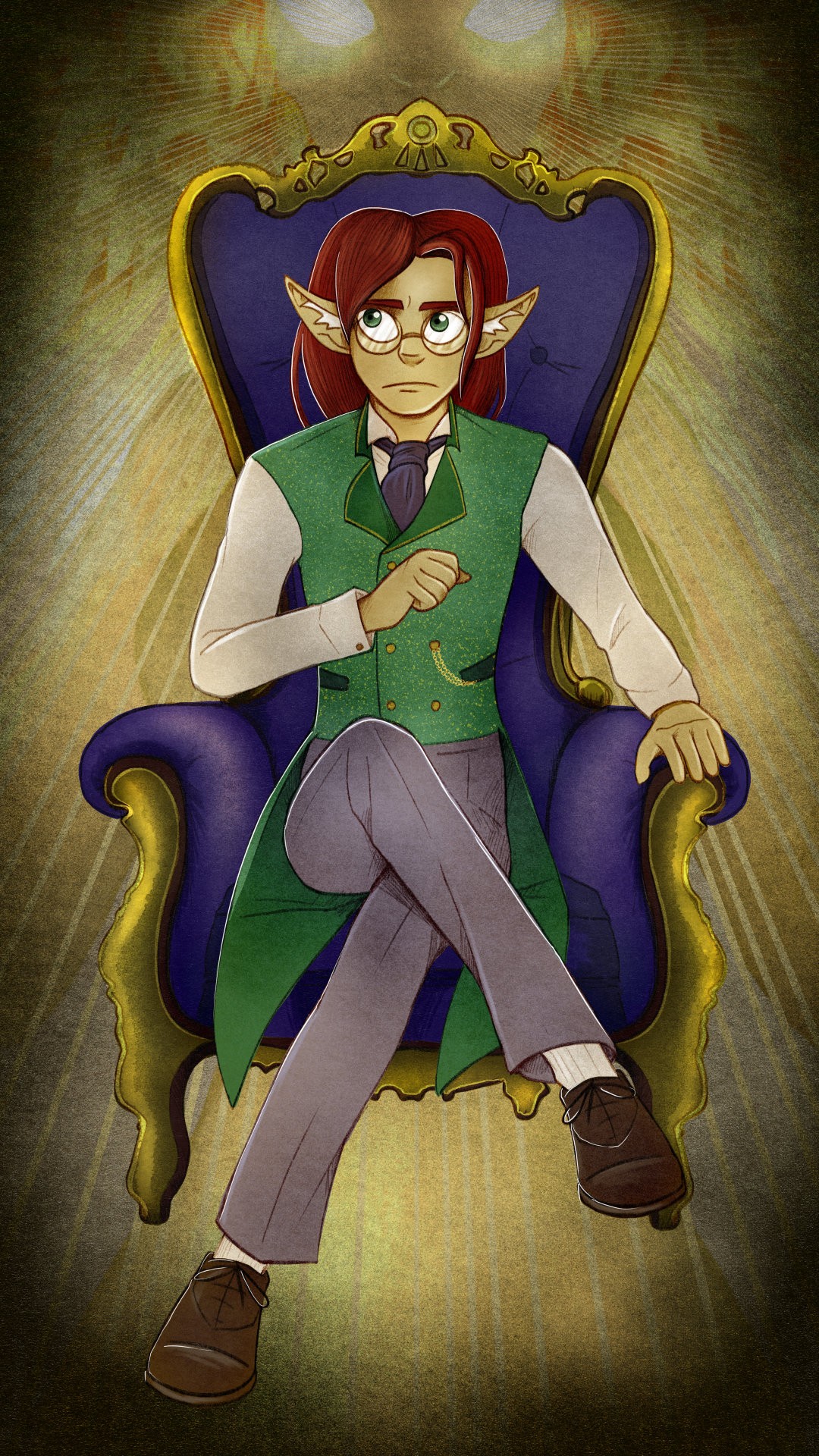
What can society do to ensure an environment that’s helpful to artists and creatives?
The biggest issue that creatives face is maintaining a livelihood, especially in the rapidly shifting technological landscape that we currently find ourselves in. This attitude is nothing new, but it’s still very sad to see how little society at large values the humans behind the art and entertainment that we enjoy.
Ultimately, what I think would be most beneficial is a universal basic income. This would benefit everyone, and might in fact become a dire need as more and more jobs are replaced by technology. But I’m especially thinking of how it would bolster creatives – just think of the unique and extraordinary things people could put out into the world when they’re not spending all their waking moments just trying to survive, or worrying about making art that will sell. To be free from the imperative of making money, and having your basic needs met is ultimately the best thing for creative expression.
Contact Info:
- Website: https://crownedvessel.carrd.co/
- Instagram: https://www.instagram.com/crownedvesselcomic/
- Facebook: https://www.facebook.com/crownedvesselcomic
- Twitter: https://twitter.com/dreadstrive
- Other: TikTok: https://www.tiktok.com/@dreadstrive Webtoon: https://www.webtoons.com/en/challenge/crowned-vessel/list?title_no=497015
Image Credits
Kira Clayton (Dreadstrive)


